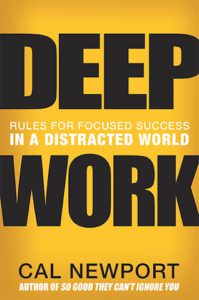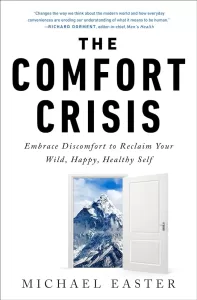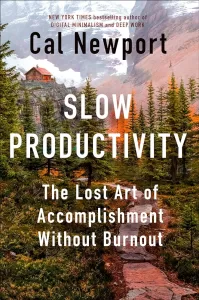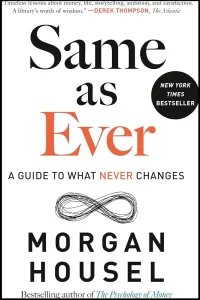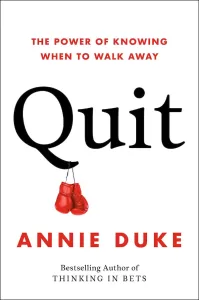Book Review: “Deep Work”
Book: Deep Work by Cal Newport
Reviewer: Bobby Powers
My Thoughts: 10 of 10
Recently I've been struggling to focus on long-term, intangible projects (even though I know they're important). I get sucked into more immediate, tangible tasks that give me the satisfaction of crossing things off my list. This book was exactly what I needed to reconfigure my priorities. Newport articulates the importance of "deep work" and offers guidelines for how to manage "shallow work" (responding to email, slack, etc.). Deep Work is a playbook for productivity and focus. It is required reading for anyone who wants to resist the tyranny of their email inbox.
Selected Quotes and Ideas from the Book
Deep Work
- Deep Work Definition: “Professional activities performed in a state of distraction-free concentration that push your cognitive capabilities to their limit. These efforts create new value, improve your skill, and are hard to replicate.”
- The Deep Work Hypothesis: “The ability to perform deep work is becoming increasingly rare at exactly the same time it is becoming increasingly valuable in our economy. As a consequence, the few who cultivate this skill, and then make it the core of their working life, will thrive.”
- “Deep work is necessary to wring every last drop of value out of your current intellectual capacity. We now know from decades of research in both psychology and neuroscience that the state of mental strain that accompanies deep work is also necessary to improve your abilities.”
- “If I organize my life in such a way that I get lots of long, consecutive, uninterrupted time-chunks, I can write novels. [If I instead get interrupted a lot] what replaces it? Instead of a novel that will be around for a long time...there is a bunch of e-mail messages that I have sent out to individual persons.” -Neal Stephenson
- Newport has spent years trying to develop deep work habits. As he explains, “My commitment to depth has rewarded me. In the ten-year period following my college graduation, I published four books, earned a PhD, wrote peer-reviewed academic papers at a high rate, and was hired as a tenure-track professor at Georgetown University. I maintained this voluminous production while rarely working past five or six p.m. during the workweek.”
Shallow Work
- Shallow Work Definition: “Noncognitively demanding, logistical-style tasks, often performed while distracted. These efforts tend to not create much new value in the world and are easy to replicate.”
- “In aggregate, the rise of [network tools like e-mail, Twitter, Facebook, BuzzFeed, and Reddit] combined with ubiquitous access to them through smartphones and networked office computers, has fragmented most knowledge workers’ attention into slivers...This state of fragmented attention cannot accommodate deep work, which requires long periods of uninterrupted thinking.”
- “In an age of network tools, in other words, knowledge workers increasingly replace deep work with the shallow alternative--constantly sending and receiving e-mail messages like human network routers, with frequent breaks for quick hits of distraction.”
- “There’s increasing evidence that this shift toward the shallow is not a choice that can be easily reversed. Spend enough time in a state of frenetic shallowness and you permanently reduce your capacity to perform deep work.”
The Enemies of Deep Work
- Attention Residue: “[W]hen you switch from some Task A to another Task B, your attention doesn’t immediately follow—a residue of your attention remains stuck thinking about the original task.” (Research by Sophie LeRoy)
- Busyness as Proxy for Productivity: “In the absence of clear indicators of what it means to be productive and valuable in their jobs, many knowledge workers turn back toward an industrial indicator of productivity: doing lots of stuff in a visible manner.”
- Business Trends: “Many other ideas are being prioritized as more important than deep work in the business world, including...serendipitous collaboration, rapid communication, and an active presence on social media. It’s bad enough that so many trends are prioritized ahead of deep work, but to add insult to injury, many of these trends actively decrease one’s ability to go deep. Open offices, for example, might create more opportunities for collaboration, but they do so at the cost of ‘massive distraction.'”
- (Some) Technology: “To support deep work often requires the rejection of much of what is new and high-tech.”
Rule #1: Work Deeply
- “The key to developing a deep work habit is to move beyond good intentions and add routines and rituals to your working life designed to minimize the amount of your limited willpower necessary to transition into and maintain a state of unbroken concentration.”
- “The more you try to do, the less you actually accomplish.” Execution should be aimed at a small number of “wildly important goals.” (From The 4 Disciplines of Execution)
- “If you want to win the war for attention, don’t try to say ‘no’ to the trivial distractions you find on the information smorgasbord; try to say ‘yes’ to the subject that arouses a terrifying longing, and let the terrifying longing crowd out everything else.” -David Brooks
- “[Great creative minds] think like artists but work like accountants.” -David Brooks
- Tips for developing a deep work ritual:
- “If it’s possible to identify a location used only for depth—for instance, a conference room or quiet library—the positive effect can be even greater.”
- “Regardless of where you work, be sure to also give yourself a specific time frame to keep the session a discrete challenge and not an open-ended slog.”
- “Your ritual needs rules and processes to keep your efforts structured. For example, you might institute a ban on any Internet use, or maintain a metric such as words produced per twenty-minute interval to keep your concentration honed.”
- “Keep in mind that finding a ritual that sticks might require experimentation, so be willing to work at it.”
Rule #2: Embrace Boredom
- “Efforts to deepen your focus will struggle if you don’t simultaneously wean your mind from a dependence on distraction. Much in the same way that athletes must take care of their bodies outside of their training sessions, you’ll struggle to achieve the deepest levels of concentration if you spend the rest of your time fleeing the slightest hint of boredom.”
- “To simply wait and be bored has become a novel experience in modern life, but from the perspective of concentration training, it’s incredibly valuable.”
- “[Y]our ability to concentrate is only as strong as your commitment to train it.”
- “Once your brain has become accustomed to on-demand distraction, [professor Clifford Nass] discovered, it’s hard to shake the addiction even when you want to concentrate. To put this more concretely: If every moment of potential boredom in your life—say, having to wait five minutes in line or sit alone in a restaurant until a friend arrives—is relieved with a quick glance at your smartphone, then your brain has likely been rewired to a point where...it’s not ready for deep work--even if you regularly schedule time to practice this concentration.”
Rule #3: Quit Social Media
- “Willpower is limited, and therefore the more enticing tools you have pulling at your attention, the harder it’ll be to maintain focus on something important. To master the art of deep work, therefore, you must take back control of your time and attention from the many diversions that attempt to steal them.”
- Newport describes what he calls the “Any-Benefit Approach to Network Tool Selection,” under which people operate under the belief that “[y]ou’re justified in using a network tool if you an identify any possible benefit to its use, or anything you might possibly miss out on if you don’t use it...The problem with this approach, of course, is that it ignores all the negatives that come along with the tools in question.”
- “[A]ll activities, regardless of their importance, consume your same limited store of time and attention. If you service low-impact activities, therefore, you’re taking away time you could be spending on higher-impact activities. It’s a zero-sum game...To abandon a network tool using this logic, therefore, is not to miss out on its potential small benefits, but is instead to get more out of the activities you already know to yield large benefits.”
Rule #4: Drain the Shallows
- “I’m asking you to treat shallow work with suspicion because its damage is often vastly underestimated and its importance vastly overestimated. This type of work is inevitable, but you must keep it confined to a point where it doesn’t impede your ability to take full advantage of the deeper efforts that ultimately determine your impact.”
- “We spend much of our day on autopilot—not giving much thought to what we’re doing with our time. This is a problem.”
- “Decide in advance what you’re going to do with every minute of your workday.”
- To decide where given tasks fall on the shallow-to-deep scale, “evaluate activities by asking a simple (but surprisingly illuminating) question: ‘How long would it take (in months) to train a smart recent college graduate with no specialized training in my field to complete this task?’”
- “Develop the habit of letting small bad things happen. If you don’t, you’ll never find time for the life-changing big things.” -Tim Ferriss
Think you’d like this book?
Other books you may enjoy:
- Peak by Anders Ericsson and Robert Pool
- Getting Things Done by David Allen
- Flow by Mihaly Csikszentmihalyi
Other notable books by the author:
- So Good They Can't Ignore You
- A World Without Email
- Digital Minimalism
Want to become a stronger leader?
Sign up to get my exclusive
10-page guide for leaders and learners.
